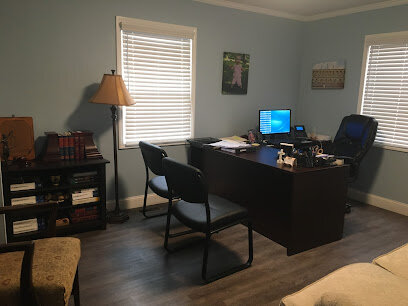Best Landlord & Tenant Lawyers in Arkansas
Share your needs with us, get contacted by law firms.
Free. Takes 2 min.
Free Guide to Hiring a Real Estate Lawyer
Or refine your search by selecting a city:
List of the best lawyers in Arkansas, United States
United States Landlord & Tenant Legal Questions answered by Lawyers
Browse our 2 legal questions about Landlord & Tenant in United States and read the lawyer answers, or ask your own questions for free.
- What is owner of condo units obligation as far as damage to the condo below their unit.
- The unit above my condo is managed by a Property Management company, and it was rented. During the time it was rented, there were water leaks that damaged my ceilings, and the Management Company. refuses to fix the ceiling so that it matches the rest of the ceiling. Even though... Read more →
-
Lawyer answer by Horus Legal Sulotion
Thank you for sharing the details of your situation. Based on the circumstances you described, you may have grounds to escalate the matter legally. You can file a case to request the appointment of a government engineer from Dubai Municipality...
Read full answer - How to protect property from squatters law
- Deed in my mom's name. She died 18 years ago. Son is named as administrator but not as owner. We live in USA so let Non relative live there for 45-50 year but had no formal contract. Let him live there free as long as he paid utilities and taxes.... Read more →
-
Lawyer answer by M BILAL ADVOCATES, CORPORATE & TAX CONSULTANTS
After completing probate to establish yourself as the legal heir, you can transfer the property title to your name and then grant them permission to reside there through a formal agreement. It is worthy to note that you can do...
Read full answer
About Landlord & Tenant Law in Arkansas, United States
Landlord and tenant law in Arkansas governs the legal rights, responsibilities, and interactions between property owners who lease residential and commercial spaces and those who rent them. These laws cover a broad spectrum of issues, including rental agreements, security deposits, eviction procedures, property maintenance, and rent payment rules. Arkansas has some distinct regulations compared to other states, making it important for both landlords and tenants to understand their unique rights and obligations under state law.
Why You May Need a Lawyer
Many Arkansas landlords and tenants manage their relationships without legal assistance. However, legal help can be crucial in certain situations, including:
- Disputes over unpaid rent or rent increases
- Problems with lease terminations or evictions
- Disagreements regarding security deposit returns
- Allegations of property damage or improper maintenance
- Situations involving unlawful entry or privacy violations
- Difficulty interpreting lease clauses or understanding legal rights
- Discrimination claims under state or federal fair housing laws
- Matters related to premature lease termination or abandonment
- Complex commercial lease negotiations
- Addressing unsafe or unlivable housing conditions
A lawyer ensures your interests are protected, helps you understand your options, and can represent you if a dispute goes to court.
Local Laws Overview
Arkansas landlord and tenant laws are primarily laid out in the Arkansas Code, Title 18 (Property), Chapters 16 and 17. A few key features include:
- Arkansas does not currently have a state-mandated warranty of habitability for rental housing, meaning there is no specific requirement that landlords maintain rentals to a minimum standard unless agreed to in the lease or specific local ordinances impose such requirements.
- Security deposits are capped at two months’ rent for most residential leases. Landlords must return security deposits within 60 days after the tenant moves out, minus deductions for damages or unpaid rent.
- Termination of tenancies generally requires formal notice - for example, three days’ notice for nonpayment of rent before filing for eviction. Other lease violations may require longer notice, depending on the lease terms.
- Evictions in Arkansas can proceed relatively quickly, especially under the Unlawful Detainer procedure. Landlords must follow precise steps, and tenants have limited defenses and response times.
- Arkansas law does not restrict the amount of rent landlords can charge or require notice before increasing rent unless stated in the lease.
- It is a criminal offense under Arkansas law for a tenant to fail to vacate after required notice and nonpayment of rent, which makes Arkansas unique among U.S. states.
- Both landlords and tenants are bound by the terms of the written lease, provided those terms do not contradict state law.
Local city or county ordinances may provide additional protections, so it is important to check for any local rules that apply to your property.
Frequently Asked Questions
What notice must a landlord give to terminate a lease in Arkansas?
For nonpayment of rent, landlords must generally give a three-day written notice to the tenant before filing for eviction. Other lease violations typically require at least 14 days’ notice, or as specified in the lease.
How much can a landlord charge for a security deposit?
In most cases, Arkansas landlords may not require a security deposit larger than two months’ rent for a residential lease. There are exceptions for landlords who own fewer properties.
When does a landlord have to return the tenant’s security deposit?
A landlord must return the security deposit, minus allowable deductions, within 60 days of the tenant moving out and providing a forwarding address.
Can landlords enter rental property without notice?
Arkansas statutes do not specify a minimum notice period, but the lease agreement may provide specific requirements. In general, landlords should provide reasonable notice, except in emergencies.
What can I do if my landlord fails to make repairs?
Arkansas is unique in not having a state law requiring landlords to make repairs unless stated in the lease or required by local ordinance. Tenants may need to consult their lease and consider negotiation or legal action if habitability is affected.
Is Arkansas a landlord-friendly state?
Many consider Arkansas laws to be more favorable to landlords, particularly due to the criminal eviction procedures and lack of general habitability requirements.
What happens if a tenant breaks the lease early?
Breaking a lease can result in the tenant owing future rent or facing other penalties, unless there is a valid legal justification or the lease provides for early termination.
How does the eviction process work in Arkansas?
The landlord provides written notice as required, and if the tenant does not comply, the landlord files for eviction through district or circuit court. Arkansas allows both civil and criminal eviction processes, and tenants have limited time to respond.
Can a tenant withhold rent if the rental is in poor condition?
Generally, Arkansas law does not allow tenants to withhold rent for repairs unless the lease or local regulations state otherwise.
Are oral leases enforceable in Arkansas?
Oral leases for periods under one year are typically enforceable, but written agreements are highly recommended for both parties’ protection.
Additional Resources
If you need more information or assistance, consider these Arkansas resources:
- Arkansas Legal Services (helpful guides and legal forms for tenants and landlords)
- Arkansas Attorney General’s Office (consumer protection and housing information)
- Arkansas Bar Association (find an attorney or request legal aid)
- Local city or county housing authorities (especially for public or subsidized housing)
- University of Arkansas Cooperative Extension Service (educational materials)
Next Steps
If you are experiencing a landlord or tenant issue in Arkansas, it is important to act quickly. Start by reviewing your written lease and gathering all documentation such as communications, notices, and receipts. If possible, try to resolve the issue directly with the other party. If that fails, consult an attorney experienced in Arkansas landlord and tenant law for a case review. Legal aid organizations and the resources listed above may offer free or low-cost guidance. Do not wait to seek help, as missing deadlines or failing to follow proper procedures can negatively affect your rights.
If you decide you need legal representation, prepare a brief summary of your issue, bring all relevant documents to your first meeting, and ask the attorney about their experience with landlord and tenant matters in Arkansas. Taking these steps can help protect your interests and resolve disputes as efficiently as possible.
Lawzana helps you find the best lawyers and law firms in Arkansas through a curated and pre-screened list of qualified legal professionals. Our platform offers rankings and detailed profiles of attorneys and law firms, allowing you to compare based on practice areas, including Landlord & Tenant, experience, and client feedback.
Each profile includes a description of the firm's areas of practice, client reviews, team members and partners, year of establishment, spoken languages, office locations, contact information, social media presence, and any published articles or resources. Most firms on our platform speak English and are experienced in both local and international legal matters.
Get a quote from top-rated law firms in Arkansas, United States — quickly, securely, and without unnecessary hassle.
Disclaimer:
The information provided on this page is for general informational purposes only and does not constitute legal advice. While we strive to ensure the accuracy and relevance of the content, legal information may change over time, and interpretations of the law can vary. You should always consult with a qualified legal professional for advice specific to your situation.
We disclaim all liability for actions taken or not taken based on the content of this page. If you believe any information is incorrect or outdated, please contact us, and we will review and update it where appropriate.
Browse landlord & tenant law firms by city in Arkansas
Refine your search by selecting a city.















